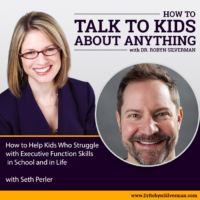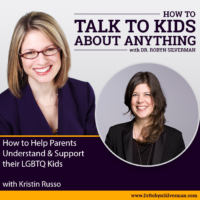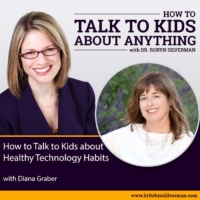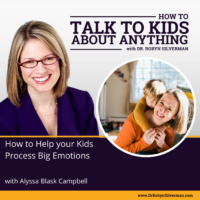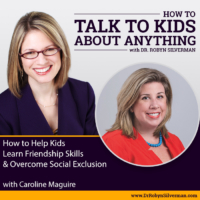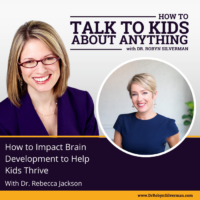Podcast: Play in new window | Download
Subscribe: Apple Podcasts | RSS | More
How to Help Kids Grieve When a Sibling Dies
This Special Kid-Expert Edition of the “How to Talk to Kids about Anything” podcast will focus on how to help and support children and teens when their sibling dies. How do we help young people grieve this significant loss? We discuss coping strategies and what surviving siblings really need from the perspective of a teen who is living through this challenge right now. Note: An article based on this interview will appear in US News & World Report on November 6, 2019.
Introducing…The Kid-Expert Edition of How to Talk to Kids about Anything:
Typically, our experts are best-selling authors and top experts who have studied a topic for many years as a researcher, writer, professional and adult. But sometimes, our best experts are the children themselves who are going through a unique situation that make it so only a small portion of people like them would understand.
Every once in a while, I will be putting in a special kid edition of How to Talk to Kids about Anything so that we get this “expert” 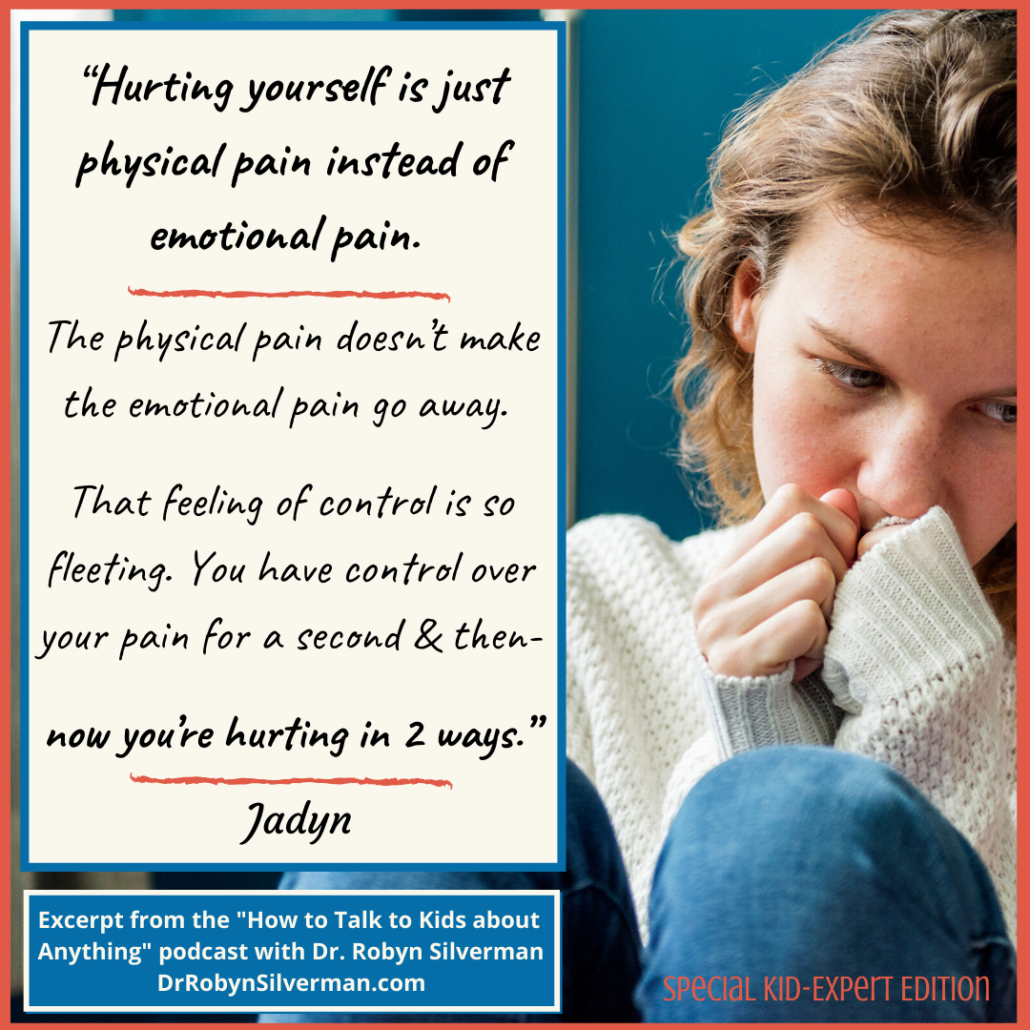 “in-the-trenches” view of what it’s like to be on the other end of these conversations with insights on what kids really need, want and would ask for from us, as adults, if we would be open to it. And- we are open to it, aren’t we? So here we are with this first kids’ edition of the How to Talk to Kids about Anything podcast—and you’ll see why it’s so important that we ask a teen who is going through this journey to talk about her views, take-aways and tips—so the adults who find themselves in a helper role such as this, are prepared.
“in-the-trenches” view of what it’s like to be on the other end of these conversations with insights on what kids really need, want and would ask for from us, as adults, if we would be open to it. And- we are open to it, aren’t we? So here we are with this first kids’ edition of the How to Talk to Kids about Anything podcast—and you’ll see why it’s so important that we ask a teen who is going through this journey to talk about her views, take-aways and tips—so the adults who find themselves in a helper role such as this, are prepared.
When people hear that one of my dearest friends suffered the loss of her 13-year-old son, Gavin, after his 16-month battle with Ewing’s Sarcoma, they often say something like; “no parent should experience the death of a child.” As a mother and a best friend, I agree. It is heart-wrenching and tragic and makes me cry in random moments as it just happened in August of this year. But there is a secondary loss that many don’t often consider to the same degree, and that is the loss of a sibling. My bestie’s amazing 15-year-old daughter, Jadyn, who I am fortunate enough to have in my life as who I refer to as my “adopted niece” and she refers to me as her Aunt, is also suffering. She is learning how to live, love and find joy in this new normal and moving forward without her brother by her side.
Studies tell us that when a sibling passes away during childhood or the teenage years, it can have a profound impact on surviving children. The development of independence, romantic relationships and even career paths can be stunted or affected, risk-taking can either be triggered or severely reined in. Acting out can take the place of excruciating sadness.
The death of a sibling has also been associated with increased diagnoses of mental disorders such as anxiety, depression and disordered eating for living brothers and sisters. So how can we, as key adults in the lives of children- teachers, coaches, parents, mentors, aunts and uncles- help and support children and teens when they’ve lost a sibling or a very close friend?
We have the privilege of speaking directly with Jadyn today on a special kid edition of the podcast—understanding that one unfortunate way you become an expert in the topic of child or teen sibling grief is to lose your brother and sister during childhood or adolescence. This is a sensitive topic- but an important one to discuss as our guest is very focused on wanting to help others who are going through a similar situation.
Jadyn is a 9th grader in the prestigious BETA program in Florida. She has been writing for years to help other teens like her. Jadyn is a high-school athlete, playing volleyball and soccer. She is known by those around her as a loving sister, daughter, and friend. She is the author of the poem, Empty Space, about her experience with grief and losing her brother.
I am so more than a little touched to have my beautiful “niece” on the show today so Welcome Jadyn to how to talk to kids about anything!
The podcast provides:
- The honest perspective of a child who has gone through sibling loss
- The different ways young people grieve
- A discussion of “grief brain.”
- The perspective of the “older surviving sibling.”
- What teens really want in terms of support
- A discussion of coping strategies
- What NOT to do/say when comforting a sibling who is going through sibling cancer
- What a child/teen really wants you to say/do when s/he is grieving
Important Messages:
- By helping others, you help yourself and by helping yourself, you are helping others.
- I wish someone told me- grief isn’t the same as everyone else’s and your version isn’t wrong if it’s different.
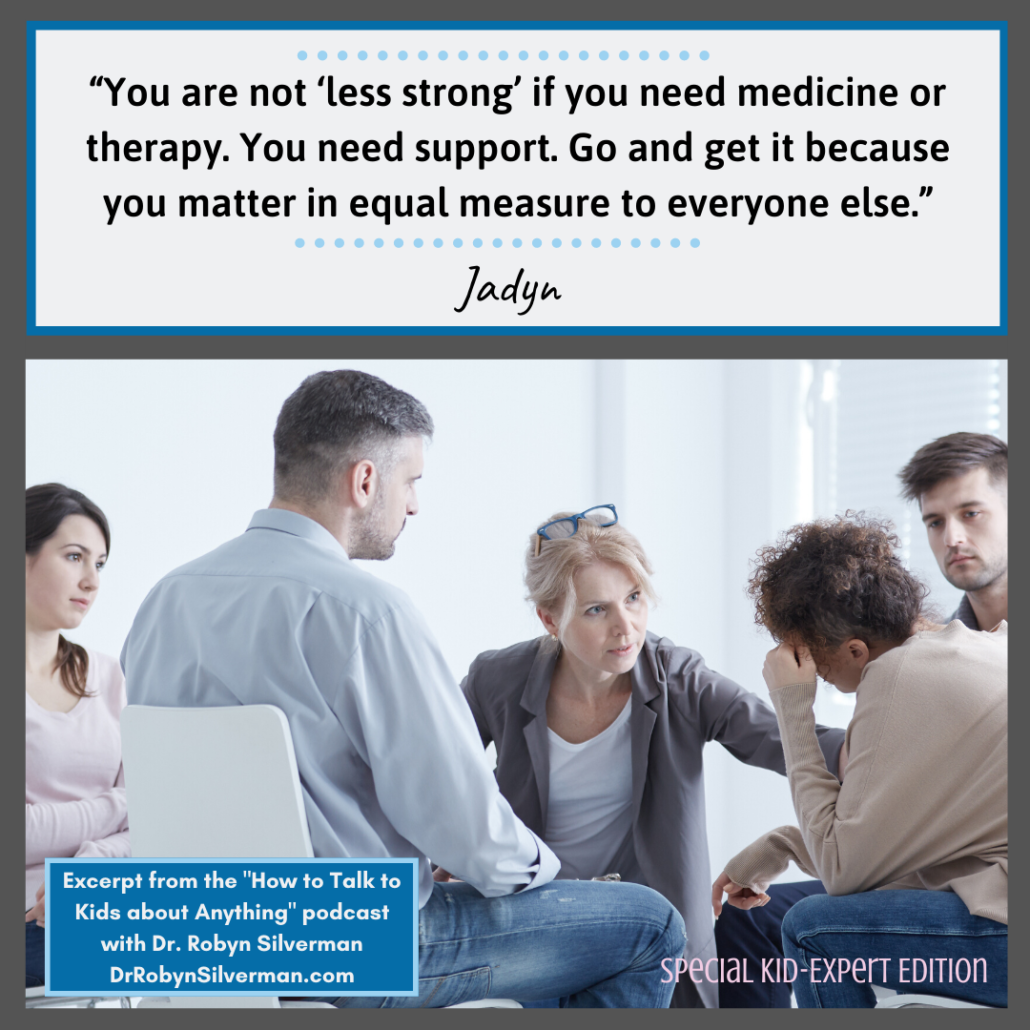
- Some people struggle to cry—but this isn’t wrong even if you are grieving. There can be intense sadness- but that doesn’t mean tears happen.
- You don’t have to understand what someone is going through to support them.
- Give people a pass. Sometimes you get “grief brain”- need to be forgiving of others. Forget things. More sensitive. More able to be triggered- upset someone. More on edge. More sentimental. More afraid. Heightened and dulled at the same time.
- Going through grief- people might be more afraid of losing memories, losing things that belong to your loved one.
- Some people need to grieve alone- pull in and listen to music. Watch something that reminds surviving siblings of their sibling that passed away. Sometimes they may try to get out of the sadness completely. Distract self. Do something else.
- Older sibling: Most functional, more experienced, older, sometimes come out thinking “my emotions can be a burden to other people.” Easier to keep them inside. Found that have to open up more through coping with her sibling’s cancer and the grief process. (Key thing here is that people may change the way they grieve through the death and dying process).
- Teens are caught between childhood and adulthood- and during the grief process. Sometimes feel that they must be the care taker- step up and take care of siblings or even the parents. Or—at least not be a burden. Need to give permission to teens to be taken care of, to break down, to be acknowledged that this is hard. Studies tell us that teens can have a hard time because of the shift that people are taking care of the parents but not always weighing the sibling loss as just as important.
- All teens/children need to have strong key adults in their lives to talk to while they are grieving—parents, teachers, friends. Reaching out to friends. Need them to know they don’t have to hide.
- Comfort: depends on where you are emotionally. Ask- what do you need? Talking about memories, looking at pictures, remembering sibling, wearing something that belonged to the sibling (i.e. hockey jerseys). But sometimes- just need to block it up.
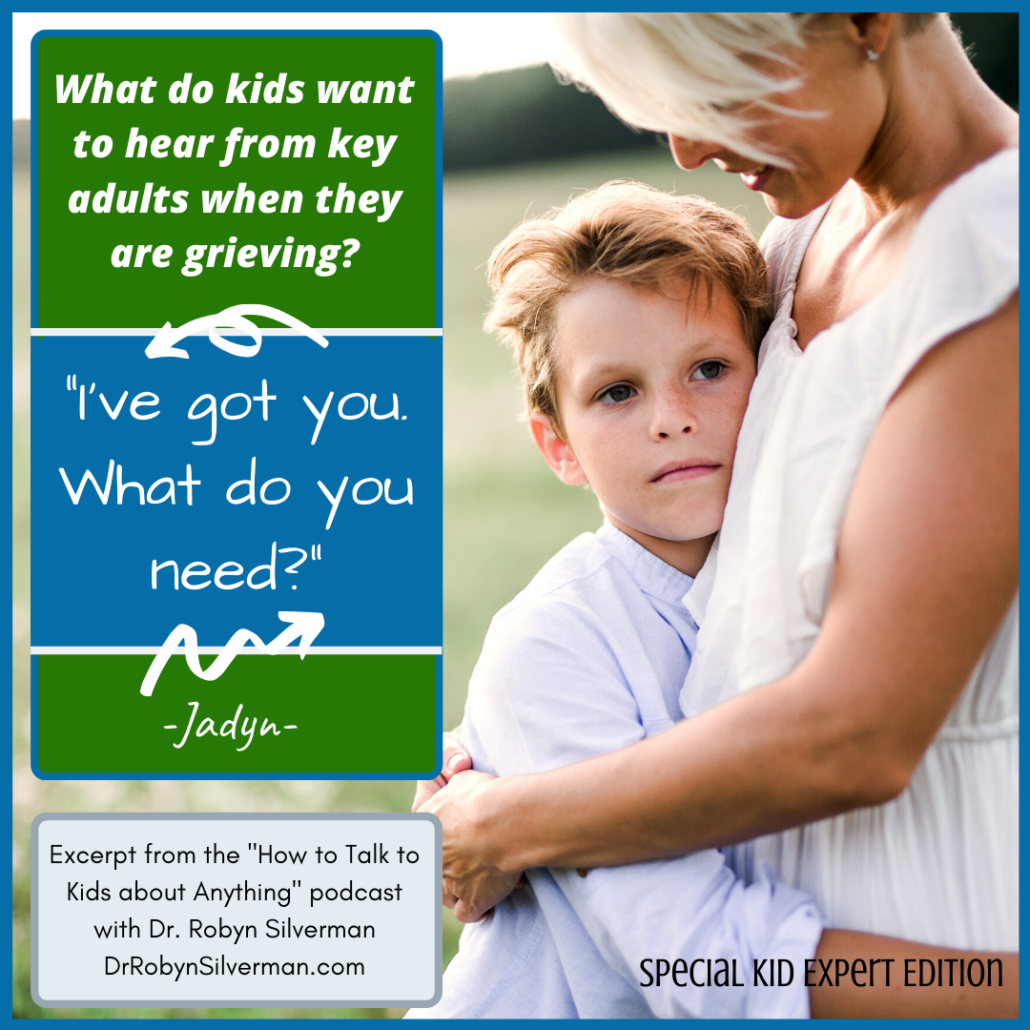 Encourage healthy coping strategies. Sometimes kids start hurting themselves because they just want it to hurt differently. Support kids so they don’t feel alone—and don’t feel like they need to hurt themselves. Broken knuckles doesn’t help. You deserve to get the support you need. The sibling doesn’t need to be the strong one. It will continue to hurt in different ways- but when we open up, we feel more connected and that helps to share the grief a bit more.
Encourage healthy coping strategies. Sometimes kids start hurting themselves because they just want it to hurt differently. Support kids so they don’t feel alone—and don’t feel like they need to hurt themselves. Broken knuckles doesn’t help. You deserve to get the support you need. The sibling doesn’t need to be the strong one. It will continue to hurt in different ways- but when we open up, we feel more connected and that helps to share the grief a bit more.- Appreciated shared experience but when people are telling you about their loved one’s cancer and that they died- it feels pretty terrible. When someone is going through cancer, they don’t want to feel like all these other people’s deaths are piling up on them. If the end result is so tragic- it’s just more scary. How will anything good come out of this?
- Give people a pass while they are grieving. Be sincere about it- not just to check the box. Genuinely give space. Don’t be overbearing. Be understanding. Those who are grieving or going through great stress when someone is sick- they are going to mess up. Don’t make it about the supporter—it’s about those who are going through the grief.
- Overwhelming to hear about life expectancy.
- Kids want to celebrate who their sibling was- not be sad all the time. Not wallow in grief. It’s important to celebrate a life rather than just wallow in sadness.
- Find inspiration in music.
- Let yourself be loved and let yourself be taken care of.
- You have to be careful and love with yourself- give yourself a break when you feel awful and you feel like you can’t get up and do what you have to do that day- or if you forgot to do something.
- Talk to your counselors. Have your parent—help you and get support. Build in talking to your counselor. Help your child get those kind of supports. Make people ready- so the child has the support and the room/freedom.
- You are not ‘less strong’ if you need medicine or therapy- at least talk to someone. There are many therapies available. If you are really struggling- talk to your medical professionals and get help. This does not make you weak.
- What do you want someone to say when you are going through a tough time? “I’ve got you and what do you need?” If the person doesn’t know yet- offer things that they might need. Give them space and support them.
Notable Quotables:
-
- “I want people to know who I am because I did things that mattered.”
- “What has helped me the most, and what I wish someone told me before it all happened, was that grief isn’t the same
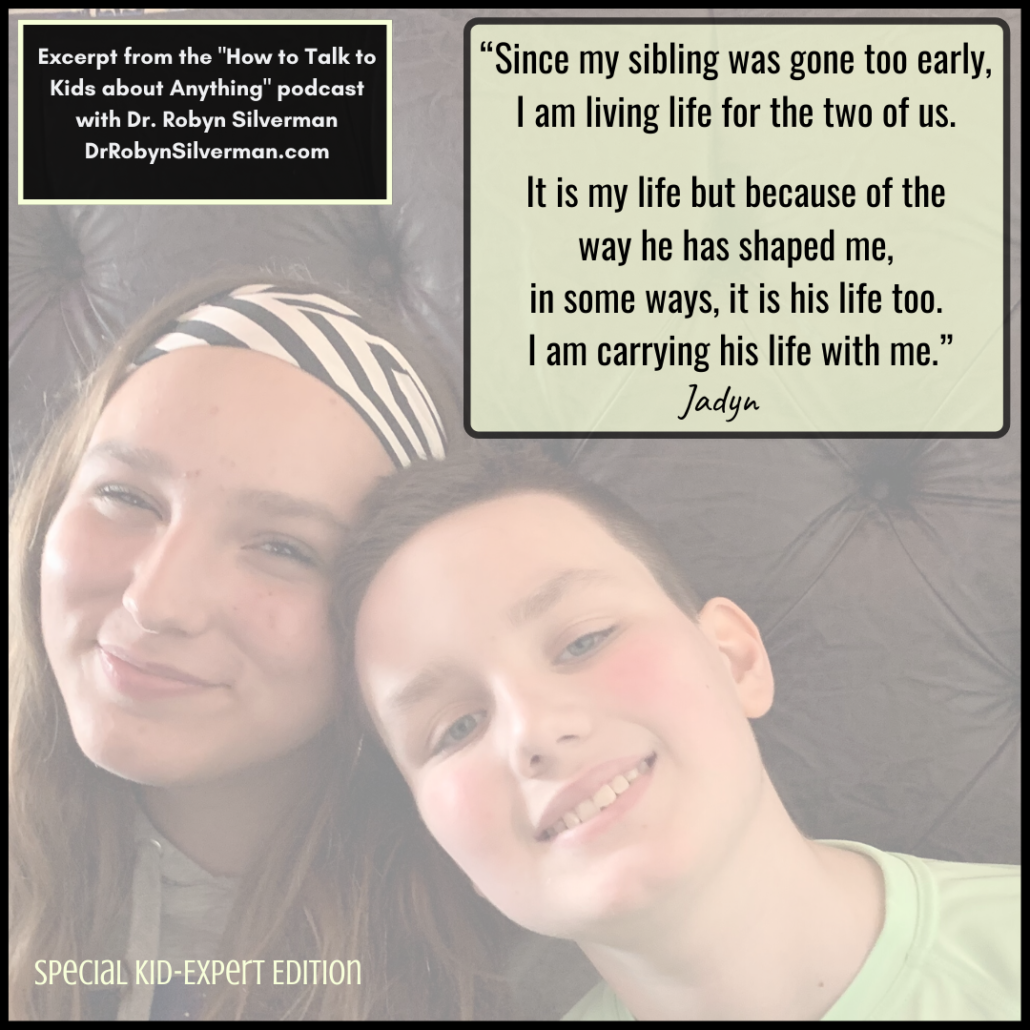 for everyone and your experience of grief isn’t wrong if it’s different.”
for everyone and your experience of grief isn’t wrong if it’s different.” - “What comforts me depends on where I am emotionally so I think it’s important to ask the person who is grieving, ‘what do you need?’”
- “It’s important to encourage healthy coping strategies. I developed one that wasn’t great- I used to hit walls in the bathroom because I just wanted it to hurt differently. I know so many kids who have done similar things- like cutting. Hurting yourself is physical pain instead of emotional pain. The thing is…the physical pain doesn’t make the emotional pain go away. I’ve never met anyone where this works. That feeling of control is so fleeting. You have control over your pain for a second and then—now you’re just hurting in two ways.”
- “If I can leave people with one thing not to say while someone is going through cancer is; don’t tell stories of people who have died of something similar because it just feels like all these deaths are piling up on you– like there is no chance now. You ask yourself; how will anything good come out of this?”
- “Genuinely give space to those who are grieving.”
- “My brother didn’t want us to be sad all the time, grieving like those families in the movies who wallow in their grief…and are mere husks of what they once were. He wanted us to celebrate life and celebrate him.”
- “It’s important to do a “Celebration of Life” rather than a funeral. My brother’s life was beautiful and though it was short, it was wonderful and full of happy moments and hard ones that we got through. Celebrating his life was what he wanted us to do so why not celebrate it?”
- “Since my sibling was gone so early, I am living life for the two of us. It is my life but because of the way he has shaped me, in some ways, it is his life too. I am carrying his life with me.”
- “You are not ‘less strong’ if you need medicine or therapy…You need support…Go and get it because you matter in equal measure to everyone else.”
- What do you want key adults to do or say if someone seems to be having trouble coping with the loss of a sibling or a loved one? “I’ve got you. What do you need?”
More Than an Empty Place
~by Jadyn
This is a chapter from a book I’ll never write
A story
I’ve told so few people
I can count all of them on one hand
But I’m hoping
That by sharing the raw truth
Maybe one of you
Will feel less alone
Because I know it is not uncommon
I know I don’t have the most tragic story in the room
But, selfishly
I hope telling it
Will help me
As much as it helps you
My little brother is dying
My sweet sweet thirteen year old brother
I’ve never dealt with death before
Never had to live
With an empty place
Where a person should be
And so… I save every memory,
Protect our pictures,
Craft him useless treasures
So when he’s gone
I can hold them
Knowing my hands are where his once were
And I can look back at the memories,
Listen to his soft voice on family videos,
Laugh at his jokes when he can no longer tell them
Even when he’s gone
Even when there’s an empty place
Where a brother should be
Through my tears,
I wish for the time back
Because I know I didn’t try hard enough
But I was just his stupid big sister
We should have had a lifetime
They promised twelve months
And god
I’d give anything for more
More time
To hold my little brother
Before all I have left
Is an empty place
Where a brother should be
I regret all those times I wished to be an only child
Because I’ll grow old
With an empty place
Where a brother should be
I know he doesn’t want us to suffer
I know he is scared
I know he wants me to be happy
He tells me, while we cry in his bed
Already mourning what hasn’t happened yet
He also told me what he wants on his tombstone
And I know
Deep down
I may never see it
Because he’s not there
Not yet, not ever
Sometimes, I don’t cry for him
I cry for me, knowing I’ll live without him
And I cry for our youngest brother
He will live a life
Not knowing what I know
Only knowing him
As the empty place
Where his big brother should be
I mourn the loss of my childhood hope
Of that deep rooted security
That things would go a certain way
That I would never live
With an empty place
Where a brother should be
Because at some point
It will be the last time
The last birthday
Last movie
Last game
Last joke
Last laugh
Last breath
And after all that
It may be hard to believe but
He is so much more than the kid
destined to die young
He’s wonderful
The kind of person this world needs
He’s the star hockey player
The loyal friend
The kid that speaks for those that are voiceless
He is my sweet
Loving
Little brother
And
He will always be more than an empty place where a brother should be.


